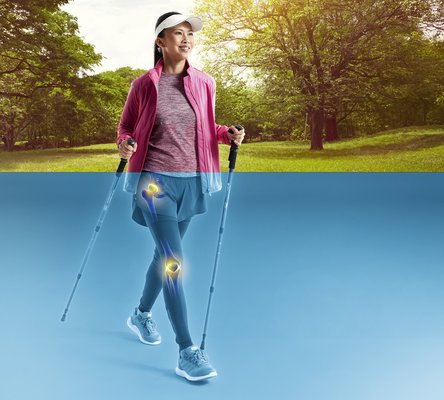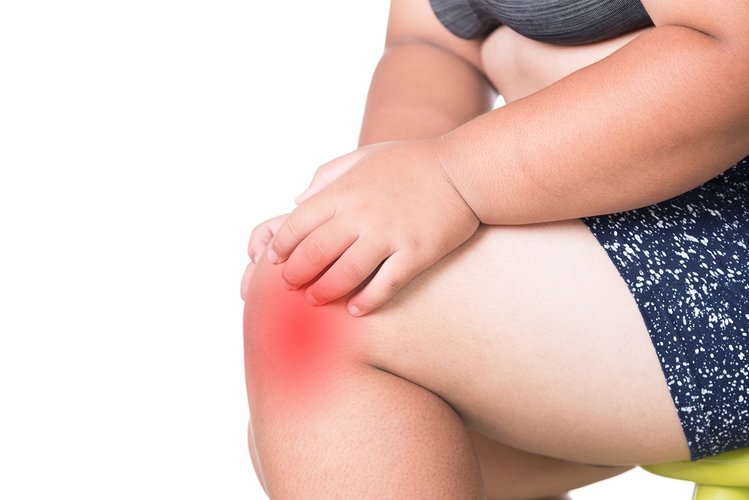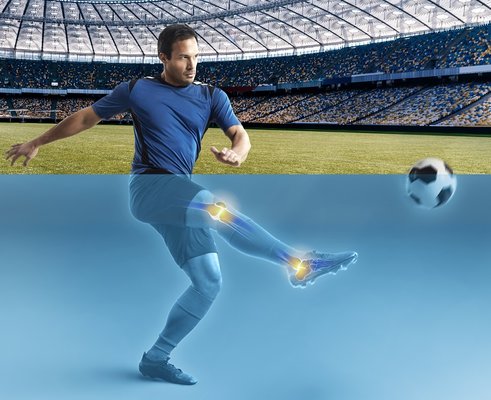Joint health isn’t just a concern for older people. Many younger people are also taking an interest in their long-term joint health. In this article we look at the three main consumer groups for whom joint conditions are a big issue. Then we take a look at how the emergence of type II collagen can help them solve their problems.

Joint conditions are usually associated with the ageing population. However, many younger people are also concerned about their joint health. The two main groups in this younger category are sportspeople and overweight people.
Nowadays, over-the-counter supplements - which tend to be a natural, safer alternative to long-term pain medication - are the common approach to supporting joint health.
Up until recently the go-to supplements have been glucosamine and chondroitin. However the emergence of ‘type II collagen’ is changing the way we approach joint health supplementation.
Before we take a look at what type II collagen is and the role it plays in the body, let’s consider the three main consumer groups for joint health and look at the problems they face.
The three main consumer groups for joint health
Healthy Agers
Sportspeople
Overweight People
Healthy Agers

It’s official. The world is getting older. As Forbes reported, the number of over-65s in the United States is, for the first time in history, set to surpass the number of 5-year-olds by the year 2020, which appears to be part of a wider global trend.
This new generation of ‘agers’ is characterized by an educated awareness about the importance of active lifestyles and nutrition; which is to say, the current generation are actively seeking ways to improve their health so they can enjoy their old age. They want to remain active for as long as they can. This type of consumer is known as ‘healthy ager’.
However, the educated awareness comes with the painful realisation that the older you get and the more active you are, the more likely it is you’ll develop joint conditions. And that’s the rub: the very process of getting old and being active causes natural wear-and-tear in joints, particularly the cartilage.
Armed with this knowledge, healthy agers are actively seeking preventative measures to protect their cartilage from degradation.
Sportspeople

This consumer group has expanded significantly in recent years. It’s no longer the preserve of a niche audience. Millennials are well-educated about health issues. They tend to love fitness. This enthusiasm for being active has contributed to a surge in people taking up sport on a regular basis.
However, it is well known that sportspeople are more likely to suffer from early joint conditions. This is because heavy and repetitive exercises put an extra load on joints, which can cause joint stiffness, inflammation and a degradation of cartilage tissue.
So this consumer group are actively seeking ways to support their joints. This is why sports nutrition is rapidly expanding, not just among professional athletes, but among the general population who are being more and more active as a means to stay fit and healthy.
Overweight People

In 2016, the World Health Organisation reported that 39% of adults are overweight, which equates to 1.9 billion people, of which 650 million are obese. And according to Arthritis Research UK being obese means you are fourteen times more likely to develop knee problems.
It’s simple physics. The more weight the joint has to support, the more strain it’s put under, eventually leading to cartilage degradation and inflammation. It becomes a vicious cycle for overweight people. They want to get active so they can lose weight, but when they do get active, it causes the kind of discomfort that can prevent a person being more active.
So this consumer group is looking for supplementary ways to support their joint health, thereby enabling them to get out, be active and get into a healthy weight range.
What is type II collagen and what role does it play in the body?
Type II collagen is a special type of protein that’s only found in cartilage tissue. It’s part of a tightly packed matrix of fibrils and fibers. It’s the substance that gives cartilage its tensile strength and elasticity.
Cartilage is an important part of joint functionality:
connects bones
allows tissue to bear mechanical stress
acts as a shock absorber
acts as lubricator allowing connected bones to move without friction
So type II collagen is a key component of joint health.
How can type II collagen supplementation support joint health?
Taken regularly at low dose, hydrolyzed type II collagen can reduce inflammation in joints and promote lubrication which helps protect the cartilage from degradation thereby extending its durability. It can also help to reduce synovial inflammation in the knee joint.
For those already with joint conditions, adding type II collagen to their regime can help them reduce swelling and stiffness, which in turn means less discomfort and more mobility.
And for those health-conscious consumers seeking preventative solutions, it can help them maintain good joint health throughout their lives.

In conclusion
The science is promising. Type II collagen is emerging as a next-generation ingredient for manufacturers of natural joint health supplements. This means the industry is better placed to help the three main consumer groups solve their problems.
For healthy agers it means they can enjoy getting old without the burden of bad joint health.
For sportspeople, better lubricated cartilage means improved performance, quicker recovery time and speedier development. It can also help them mitigate the risk-factors (in terms of joint health) associated with intense sporting activity.
For overweight people it means less stiffness and discomfort, and better mobility, thereby enabling them to get more active and reduce their weight to a healthy level, all the while protecting their joints in the long term.
If you would like a more in depth look at the benefits of type II collagen and how science is proving its efficacy, check it out this featured article.
DISCLAIMER:
Rousselot makes no representation or warranty, whether expressed or implied, as to the accuracy, reliability, or completeness of the information, nor does it assume any legal liability, whether direct or indirect, for any information. Use of this information shall be at your discretion and risk. Nothing herein relieves you from carrying out your own suitability determinations and tests and from your obligation to comply with all applicable laws and regulations and to observe all third-party rights. This product is not intended to diagnose, treat, cure, or prevent any disease.
